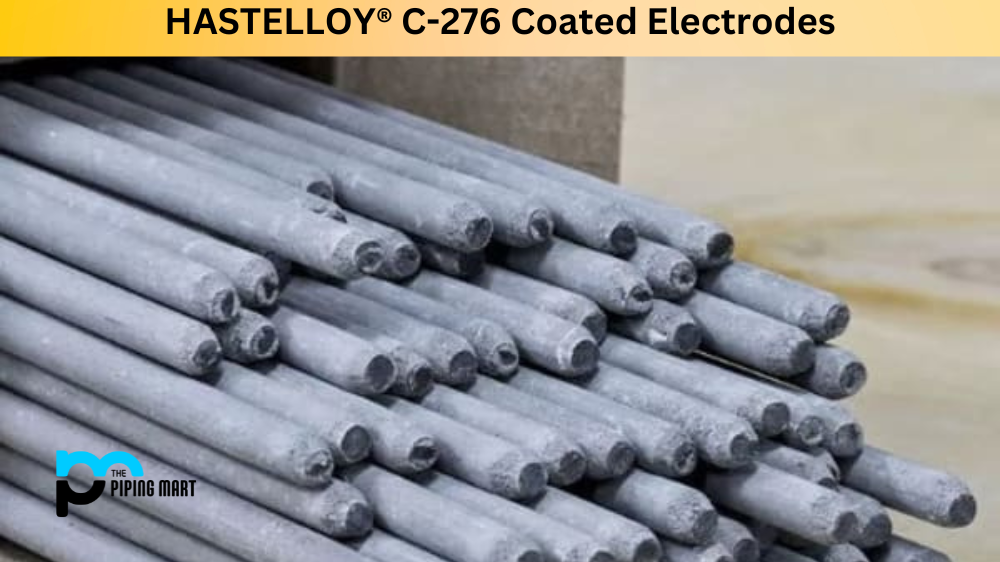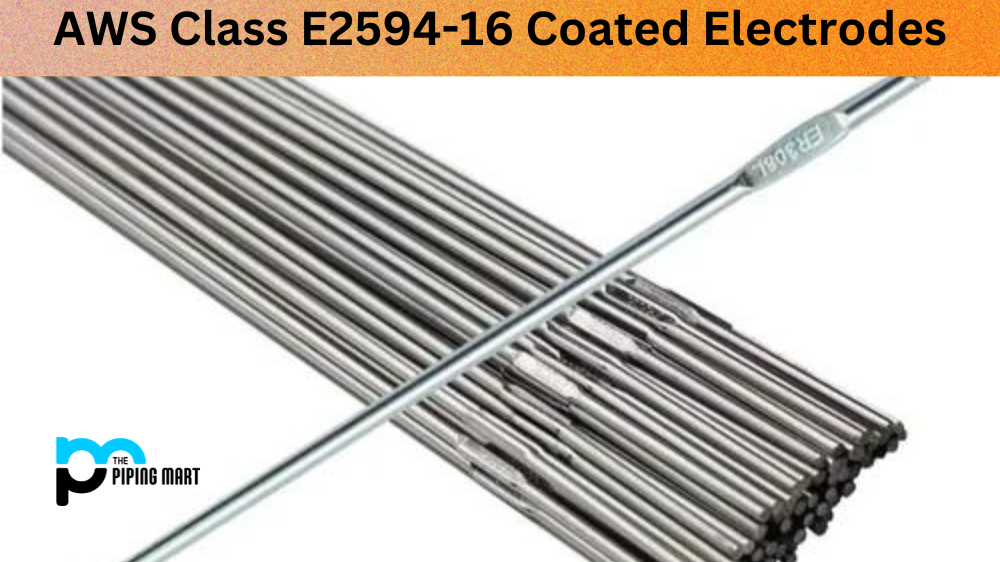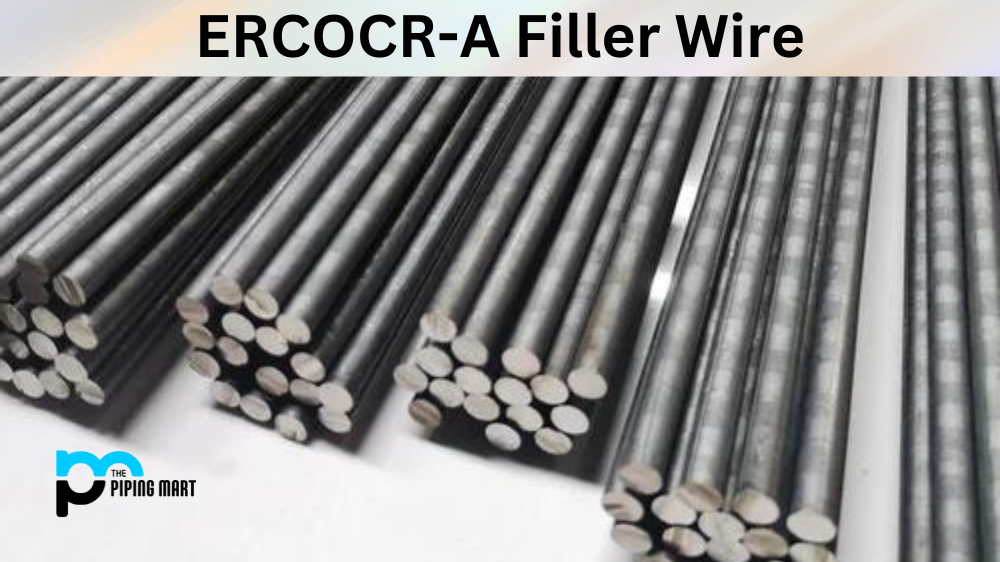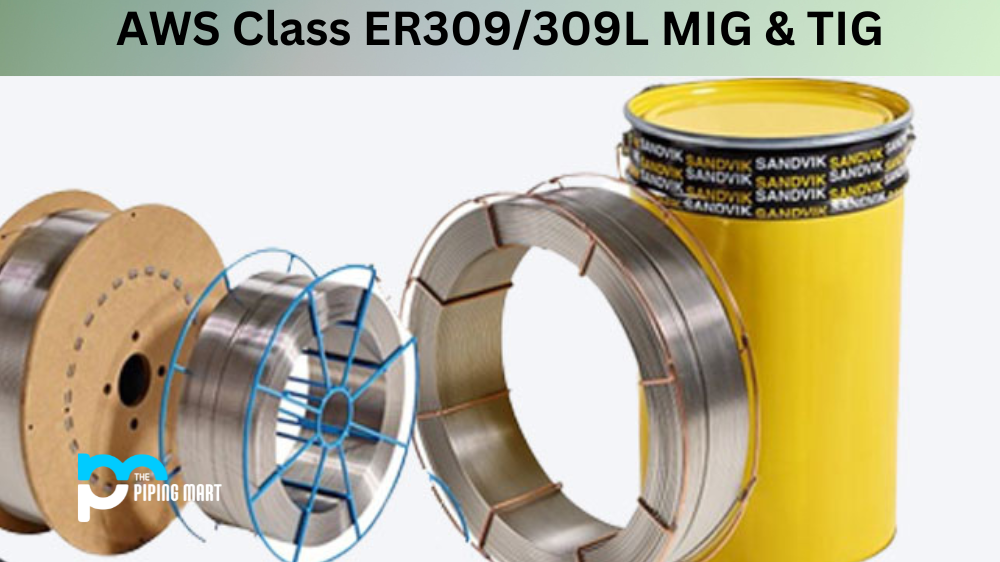Regarding welding, some projects require speciality coatings to ensure the final product is durable and corrosion-resistant. HASTELLOY® C-276 coated electrodes are one such coating option that provides excellent mechanical and physical properties, making them a popular choice for various industrial applications. This blog post will dive into the composition, mechanical and physical properties, and uses of HASTELLOY® C-276 coated electrodes to better understand why they are valuable to any welding project.
What are HASTELLOY® C-276 Coated Electrodes?
HASTELLOY® C-276 Coated Electrodes are specialized welding electrodes in high-temperature, highly corrosive environments. They provide superior weld bead stability and are attractive over conventional coated electrodes with excellent performance at low and high heat inputs. The alloy has excellent thermal shock, abrasion resistance, and good oxidation and stress corrosion cracking properties, making it ideal for chemical applications. These electrodes are available in various coatings, such as basic coating or rutile coating, to ensure proper arc-striking capabilities.
HASTELLOY® C-276 Welding Electrodes Composition
HASTELLOY® C-276 welding wire contain a mix of nickel, molybdenum, tungsten, and chromium, with trace amounts of iron and cobalt. The high nickel content allows the alloy to maintain strength and flexibility at high temperatures, while the added molybdenum and tungsten enhance its corrosion resistance properties. When combined with the chromium, HASTELLOY® C-276 coated electrodes provide excellent resistance to oxidizing and reducing environments, further increasing their durability.
| Nickel: | Balance |
|---|---|
| Molybdenum: | 15.0-17.0 |
| Chromium: | 14.5-16.5 |
| Iron: | 4.0-7.0 |
| Tungsten: | 3.0-4.5 |
| Cobalt: | 2.5 max. |
| Manganese: | 1.0 max. |
| Copper: | 0.50 max. |
| Other: | 0.50 max. |
| Vanadium: | 0.35 max. |
| Silicon: | 0.20 max. |
| Carbon: | 0.02 max. |
| Sulfur: | 0.03 max. |
| Phosphorus: | 0.04 max. |
HASTELLOY® C-276 Coated Electrodes Mechanical Properties
HASTELLOY® C-276 welding electrode have a high yield strength of at least 41 psi and are well-suited to withstand stress and strain. They also have an ultimate tensile strength of 100 psi, which means they can withstand high-pressure levels without breaking. Additionally, HASTELLOY® C-276 coated electrodes can resist cracking and corrosion, making them ideal for harsh environments.
| Tensile (psi) | 100,000 |
|---|---|
| Mpa | 690 |
| Elongation (%) | 25 |
HASTELLOY® C-276 Welding Electrodes Physical Properties
HASTELLOY® C-276 welding wire have a density of 8.89 g/cm³ and a melting point of 1370°C, making them able to withstand high temperatures. They also have good electrical conductivity properties, allowing for a smooth and consistent weld. In addition, HASTELLOY® C-276 coated electrodes have good thermal conductivity, which helps prevent overheating and warping during welding.
HASTELLOY® C-276 Coated Electrodes Trade Names
| Class | UNS | Haynes |
| ENiCrMo-17 | W860675 | HASTELLOY® C-276 |
HASTELLOY® C-276 Welding Electrodes Uses
HASTELLOY® C-276 filler wire are ideal for use in harsh environments and high-temperature applications, such as in the chemical, oil, and gas industries. They are also commonly used in the pharmaceutical and biotech industries due to their resistance to corrosive chemicals. HASTELLOY® C-276 coated electrodes are used in various welding projects, including fabricating reactor vessels, heat exchangers, and chemical processing equipment.
HASTELLOY® C-276 Coated Electrodes Corrosion Resistance
One of the key benefits of HASTELLOY® C-276 filler metal is their superior corrosion resistance properties. They can withstand attack from aggressive chemicals such as hydrochloric acid, sulfuric acid, and chlorine gas. They are also immune to pitting, crevice, and stress corrosion cracking. Additionally, their non-oxidizing properties allow them to remain in service in reducing environments without corroding.
HASTELLOY® C-276 Welding Electrodes Heat Treatment
HASTELLOY® C-276 alloy do not require post-weld heat treatment. However, preheating the base material can help reduce the risk of cracking. It is also important to keep in mind that HASTELLOY® C-276 coated electrodes are sensitive to intergranular corrosion and, as such, should be welded with low heat input and with filler materials that contain a low carbon content.
Conclusion
HASTELLOY® C-276 coated electrodes are a valuable addition to any welding project due to their superior mechanical and physical properties, excellent corrosion resistance, and suitability for use in harsh conditions. Whether you are working in the chemical, oil, gas, or pharmaceutical industries, HASTELLOY® C-276 coated electrodes can provide a long-lasting and durable solution. Consider the alloy’s composition, physical and mechanical properties, uses, corrosion resistance properties, and heat treatment requirements when considering the best welding solution for your project.
Meet Heer, a dynamic and driven writer learning tricks of her trade in the metal industry. With a background in Digital Marketing, Heer brings a unique perspective to her writing, sharing valuable insights. Apart from blogging she like reading and hiking.




